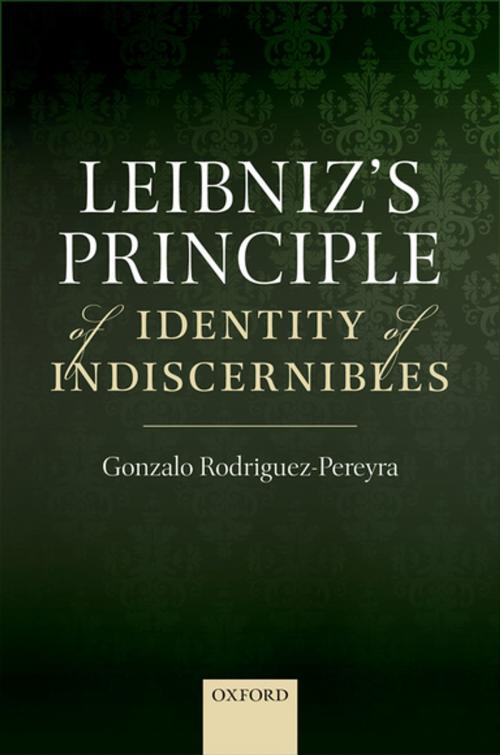Leibniz's Principle of Identity of Indiscernibles
Nonfiction, Religion & Spirituality, Philosophy, Modern, History, Criticism, & Surveys| Author: | Gonzalo Rodriguez-Pereyra | ISBN: | 9780191022760 |
| Publisher: | OUP Oxford | Publication: | August 14, 2014 |
| Imprint: | OUP Oxford | Language: | English |
| Author: | Gonzalo Rodriguez-Pereyra |
| ISBN: | 9780191022760 |
| Publisher: | OUP Oxford |
| Publication: | August 14, 2014 |
| Imprint: | OUP Oxford |
| Language: | English |
Gonzalo Rodriguez-Pereyra presents an original study of the place and role of the Identity of Indiscernibles in Leibniz's philosophy. The Principle of the Identity of Indiscernibles rules out numerically distinct but perfectly similar things; Leibniz derived it from more basic principles and used it to establish important philosophical theses. Rodriguez-Pereyra aims to establish what Leibniz meant by the Principle of Identity of Indiscernibles, what his arguments for and from it were, and to assess those arguments and Leibniz's claims about the Principle of Identity of Indiscernibles. He argues that Leibniz had a very strong version of the principle, according to which no possibilia (whether or not they belong to the same possible world) are intrinsically perfectly similar, where this excludes things that differ in magnitude alone. The book discusses Leibniz's arguments for the Identity of Indiscernibles in the Meditation on the Principle of the Individual, the Discourse on Metaphysics, Notationes Generales, Primary Truths, the letter to Casati of 1689, the correspondence with Clarke, as well as the use of the Identity of Indiscernibles in Leibniz's arguments against the Cartesian conception of the material world, atoms, absolute space and time, the Lockean conception of the mind as a tabula rasa, and freedom of indifference. Rodriguez-Pereyra argues that the Identity of Indiscernibles was a central but inessential principle of Leibniz's philosophy.
Gonzalo Rodriguez-Pereyra presents an original study of the place and role of the Identity of Indiscernibles in Leibniz's philosophy. The Principle of the Identity of Indiscernibles rules out numerically distinct but perfectly similar things; Leibniz derived it from more basic principles and used it to establish important philosophical theses. Rodriguez-Pereyra aims to establish what Leibniz meant by the Principle of Identity of Indiscernibles, what his arguments for and from it were, and to assess those arguments and Leibniz's claims about the Principle of Identity of Indiscernibles. He argues that Leibniz had a very strong version of the principle, according to which no possibilia (whether or not they belong to the same possible world) are intrinsically perfectly similar, where this excludes things that differ in magnitude alone. The book discusses Leibniz's arguments for the Identity of Indiscernibles in the Meditation on the Principle of the Individual, the Discourse on Metaphysics, Notationes Generales, Primary Truths, the letter to Casati of 1689, the correspondence with Clarke, as well as the use of the Identity of Indiscernibles in Leibniz's arguments against the Cartesian conception of the material world, atoms, absolute space and time, the Lockean conception of the mind as a tabula rasa, and freedom of indifference. Rodriguez-Pereyra argues that the Identity of Indiscernibles was a central but inessential principle of Leibniz's philosophy.















